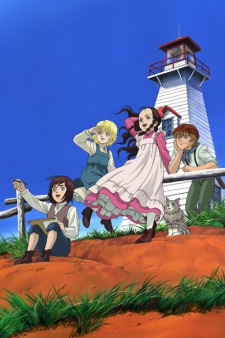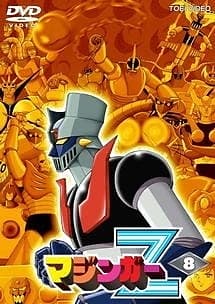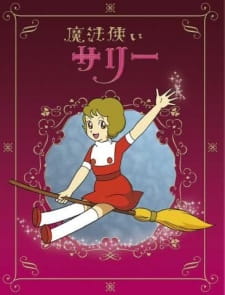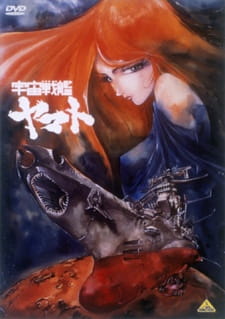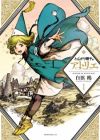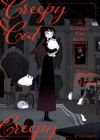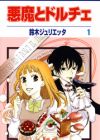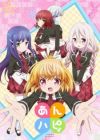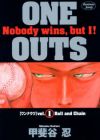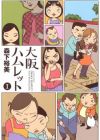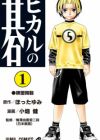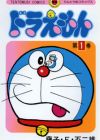Mitsuko Horie "Micchi" (堀江美都子)
Anime
Mitsuko Horie is a japanese singer and actress, she is known as the "Queen of Anime Music" due to her countless and valuable contributions to the scene of anime music over her long career spanning over 50 years.
This list is a collection of series that I view are essential when it comes to experiencing Mitsuko Horie "Micchi" as an artist through her work on anime series. Ordered on how important and big role of the experience her performance plays in the series as a whole.
More comprehensive list of the songs in this page:
https://myanimelist.net/clubs.php?cid=86238
This stack is intended as a guide for people interested in the artist and their works and wanting to be able to experience the most important performances and the works of the artist and the experience that these works and performances provide to the audience as a part of a series or a film.
The Four Kings:
Mitsuko Horie - https://myanimelist.net/stacks/9754
Ichiro Mizuki - https://myanimelist.net/stacks/15851
Kumiko Oosugi - https://myanimelist.net/stacks/24461
Isao Sasaki - https://myanimelist.net/stacks/24460
-------------------------------------------------------
Satoko Yamano - https://myanimelist.net/stacks/38010
This list is a collection of series that I view are essential when it comes to experiencing Mitsuko Horie "Micchi" as an artist through her work on anime series. Ordered on how important and big role of the experience her performance plays in the series as a whole.
More comprehensive list of the songs in this page:
https://myanimelist.net/clubs.php?cid=86238
This stack is intended as a guide for people interested in the artist and their works and wanting to be able to experience the most important performances and the works of the artist and the experience that these works and performances provide to the audience as a part of a series or a film.
The Four Kings:
Mitsuko Horie - https://myanimelist.net/stacks/9754
Ichiro Mizuki - https://myanimelist.net/stacks/15851
Kumiko Oosugi - https://myanimelist.net/stacks/24461
Isao Sasaki - https://myanimelist.net/stacks/24460
-------------------------------------------------------
Satoko Yamano - https://myanimelist.net/stacks/38010

TV, 1976,
115 eps
Me:-
Author:10
Known for the hit song and instant classic "Candy Candy" that was used as an opening theme for the series, features also many other hit songs from Mitsuko Horie and her presence is present in the series throughout its run. Definitely the most important piece on this list.
The performances in the series I'd say elevate the visual experience of the series into a new level, as the performances are utilized to provide further depth and emotion relating to the important aspects and characters of the series.
You can experience the performance through these characters and situations, which I think is something special and not something that can be experienced in many series.
Songs to look out for:
Candy Candy (キャンディ キャンディ) - Opening theme
Ashita ga Suki (あしたがすき) - Ending theme
Omoide no Uta (想い出のうた)
Shiawase no Tobira (幸せのとびら)
Tsumetaku Saretemo (つめたくされても)
Ganbare Candy (がんばれキャンディ)
Akogare no Hito (あこがれのひと)
Candy Waltz (キャンディワルツ)
Yume nara Samenaide (夢ならさめないで)
Nakayoshi Kurin (仲よしクリン)
The performances in the series I'd say elevate the visual experience of the series into a new level, as the performances are utilized to provide further depth and emotion relating to the important aspects and characters of the series.
You can experience the performance through these characters and situations, which I think is something special and not something that can be experienced in many series.
Songs to look out for:
Candy Candy (キャンディ キャンディ) - Opening theme
Ashita ga Suki (あしたがすき) - Ending theme
Omoide no Uta (想い出のうた)
Shiawase no Tobira (幸せのとびら)
Tsumetaku Saretemo (つめたくされても)
Ganbare Candy (がんばれキャンディ)
Akogare no Hito (あこがれのひと)
Candy Waltz (キャンディワルツ)
Yume nara Samenaide (夢ならさめないで)
Nakayoshi Kurin (仲よしクリン)
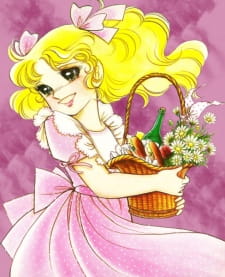
Movie, 1992,
1 ep
Me:-
Author:10
The 1992 remaster for the instant classic hit song "Candy Candy" known as "Candy Candy '92" is brought alive in this film and it sets basically the tone of the film from the get go, definitely something to finish off the experience after experiencing the full series first.
The performance draws strong parallels to the original performance and thus allows the audience to experience the classic in a new way. I'd say that in some ways the remaster is even better than the original as far as the emotion and the experience goes when linked to the setting and the cahracters of the series.
Songs to look out for:
Candy Candy '92 (キャンディキャンディ '92)
The performance draws strong parallels to the original performance and thus allows the audience to experience the classic in a new way. I'd say that in some ways the remaster is even better than the original as far as the emotion and the experience goes when linked to the setting and the cahracters of the series.
Songs to look out for:
Candy Candy '92 (キャンディキャンディ '92)
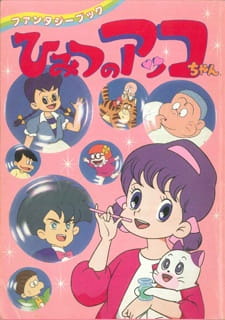
TV, 1988,
61 eps
Me:-
Author:10
The first reboot of the famous Magical Girl series, this time centering the spotlight on Mitsuko Horie as what I would call the experience that revebrates the essence of the artist to its fullest potential. Series includes many instant classic hit songs, including the cover of the famous song from the 1969 series. Mitsuko Horie also voicing Atsuko the Main character to enhance the experience even further.
The "reboot" of the "Toei Majokko" Series had to start with Akko or Sally as they were the most successful ones from the original run. The performance of Mitsuko Horie was not part of either of these in their original run, but as she later established herself and the importance of her performance when it comes to the "Toei Majokko" Series I'd say that her inclusion in the "reboot" was expected.
As far as the performance goes, it draws heavy parallels to the original series and the original performance while also connecting that performance to her earlier performances when it comes to the "Toei Majokko" Series thus creating a wonderful experience when it comes to the work as a whole.
Also about "Sally" I recommend listening Mitsuko Horie cover of the classic "Mahoutsukai Sally" opening, the opening is part of PS2 game "Taiko no Tatsujin Anime Special"
Songs to look out for:
Himitsu no Akko-chan (ひみつのアッコちゃん) - Opening theme
DON'T YOU? (DON'T YOU...?) - Ending theme
Himitsu no Akko-chan Ondo (ひみつのアッコちゃん音頭)
Kokoro no Kagami (心の鏡)
The "reboot" of the "Toei Majokko" Series had to start with Akko or Sally as they were the most successful ones from the original run. The performance of Mitsuko Horie was not part of either of these in their original run, but as she later established herself and the importance of her performance when it comes to the "Toei Majokko" Series I'd say that her inclusion in the "reboot" was expected.
As far as the performance goes, it draws heavy parallels to the original series and the original performance while also connecting that performance to her earlier performances when it comes to the "Toei Majokko" Series thus creating a wonderful experience when it comes to the work as a whole.
Also about "Sally" I recommend listening Mitsuko Horie cover of the classic "Mahoutsukai Sally" opening, the opening is part of PS2 game "Taiko no Tatsujin Anime Special"
Songs to look out for:
Himitsu no Akko-chan (ひみつのアッコちゃん) - Opening theme
DON'T YOU? (DON'T YOU...?) - Ending theme
Himitsu no Akko-chan Ondo (ひみつのアッコちゃん音頭)
Kokoro no Kagami (心の鏡)
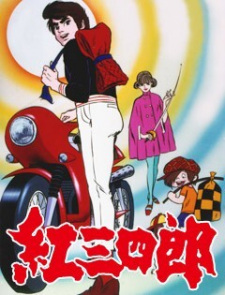
TV, 1969,
26 eps
Me:-
Author:10
Known as her "debut work" when it comes to Anisong and I'd say that the performance doesnt leave anyone cold.
Songs to look out for:
Kurenai Sanshirou (紅三四郎)
Songs to look out for:
Kurenai Sanshirou (紅三四郎)
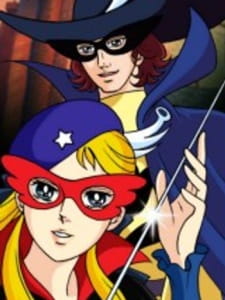
TV, 1975,
39 eps
Me:-
Author:10
Featuring many hit songs, including the famous "La Seine no Hoshi" opening theme song.
About the performance: The vocalist for the main performance "Arléne" did not make it in time when the airing of the series started, so Mitsuko Horie and her performance was used as a backup for the initial performance in the starting episodes of the series.
The performance while different from the performance of "Arléne" I'd say adds another layer to the experience that the performance of "Arléne" was not able to add.
Songs to look out for:
La Seine no Hoshi (ラ・セーヌの星) - Opening theme
Watashi wa Simone (私はシモーヌ) - Ending theme
Marie Antoinette (マリー・アントワネット)
Nakuna Simone (泣くなシモーヌ)
Kenshi no ShaShaSha (剣士のシャシャシャ)
Susume Paris no Tameni (進めパリのために)
Ai no Theme (愛のテーマ)
About the performance: The vocalist for the main performance "Arléne" did not make it in time when the airing of the series started, so Mitsuko Horie and her performance was used as a backup for the initial performance in the starting episodes of the series.
The performance while different from the performance of "Arléne" I'd say adds another layer to the experience that the performance of "Arléne" was not able to add.
Songs to look out for:
La Seine no Hoshi (ラ・セーヌの星) - Opening theme
Watashi wa Simone (私はシモーヌ) - Ending theme
Marie Antoinette (マリー・アントワネット)
Nakuna Simone (泣くなシモーヌ)
Kenshi no ShaShaSha (剣士のシャシャシャ)
Susume Paris no Tameni (進めパリのために)
Ai no Theme (愛のテーマ)

TV, 1970,
48 eps
Me:-
Author:10
The essence of the young artist perfectly embodied in this work. Touching the hearts of the audience with the performance.
Her first performance when it comes to the "Toei Majokko" Series and I'd say that it is one of the defining performances. The "tone shift" technique that drew popularity in works such as "Hakushon Daimaou" was further utilized in this work, and because of that and the strong "link" that was present with ther themes and characters of the series and Mitsuko Horie herself I'd say that the link between her performance and the "Toei Majokko" Series was able to be established.
Songs to look out for:
Mahou no Mako-chan (魔法のマコちゃん) - Opening theme
Boku wa Mako ni Tsuiteiku (ボクはマコについていく) - Ending theme
Her first performance when it comes to the "Toei Majokko" Series and I'd say that it is one of the defining performances. The "tone shift" technique that drew popularity in works such as "Hakushon Daimaou" was further utilized in this work, and because of that and the strong "link" that was present with ther themes and characters of the series and Mitsuko Horie herself I'd say that the link between her performance and the "Toei Majokko" Series was able to be established.
Songs to look out for:
Mahou no Mako-chan (魔法のマコちゃん) - Opening theme
Boku wa Mako ni Tsuiteiku (ボクはマコについていく) - Ending theme

TV, 1980,
49 eps
Me:-
Author:10
Both the voice acting performance and the performance when it comes to the songs in the series I'd say reached the culmination point in this series when it comes to the "Toei Majokko" Series. This work is the last installment of the series and I'd say that it estableshed a strong connection between Mitsuko Horie and the identity of the "Toei Majokko" Series as a whole.
Songs to look out for:
Hello Lalabel (ハローララベル) - Opening theme
Mahou Shoujo Lalabel (魔法少女ララベル) - Ending theme
Ai no Mahou (愛の魔法)
Lalabel March (ララベルマーチ)
My Beautiful Town (マイビューティフルタウン)
Watashi no Nikkichou (私の日記帳)
Anata e (あなたへ)
Sakihana Shougakkou School Song (咲花小学校スクールソング)
Onaji Hoshi no Tomodachi (おなじ星のともだち)
Songs to look out for:
Hello Lalabel (ハローララベル) - Opening theme
Mahou Shoujo Lalabel (魔法少女ララベル) - Ending theme
Ai no Mahou (愛の魔法)
Lalabel March (ララベルマーチ)
My Beautiful Town (マイビューティフルタウン)
Watashi no Nikkichou (私の日記帳)
Anata e (あなたへ)
Sakihana Shougakkou School Song (咲花小学校スクールソング)
Onaji Hoshi no Tomodachi (おなじ星のともだち)
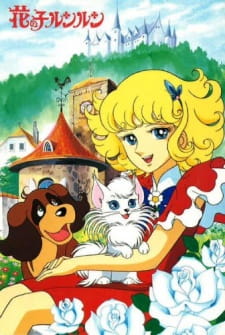
TV, 1979,
50 eps
Me:-
Author:10
The performance in this series, I'd say draws resemblance to the performance in the series "Candy Candy" where I think lot of the "elements" for the series and performance were drawn from and then those elements were put into already established "Toei Majokko" formula. The result I'd say bears its own identity as far as the performance goes even as the inspiration for the elements was drawn from earlier success.
Songs to look out for:
Hana no Ko Lunlun (花の子ルンルン) - Opening theme
Suteki na Henshin (すてきな変身)
Yume de Anata to (夢であなたと)
Lilac no Hanakotoba (ライラックの花言葉)
Koi no Hana Uranai (恋の花占い)
Otou-san no Uta (おとうさんの歌)
Hana Dayori (花だより)
Songs to look out for:
Hana no Ko Lunlun (花の子ルンルン) - Opening theme
Suteki na Henshin (すてきな変身)
Yume de Anata to (夢であなたと)
Lilac no Hanakotoba (ライラックの花言葉)
Koi no Hana Uranai (恋の花占い)
Otou-san no Uta (おとうさんの歌)
Hana Dayori (花だより)

TV, 1974,
26 eps
Me:-
Author:9
Songs to look out for:
Jim Button no Uta (ジムボタンの歌) - Opening theme
Pokko-chan ga Suki (ポッコちゃんが好き) - Ending theme
Pokko no Sora (ポッコの空)
Hayaku Ningen ni Modoritai (はやく人間にもどりたい)
Mama no Yume (ママの夢)
Kirai Suki (きらい好き)
Button wo Nigitte (ボタンを握って)
Jim Button Kiki Ippatsu (ジムボタン危機一髪)
Jim Button no Uta (ジムボタンの歌) - Opening theme
Pokko-chan ga Suki (ポッコちゃんが好き) - Ending theme
Pokko no Sora (ポッコの空)
Hayaku Ningen ni Modoritai (はやく人間にもどりたい)
Mama no Yume (ママの夢)
Kirai Suki (きらい好き)
Button wo Nigitte (ボタンを握って)
Jim Button Kiki Ippatsu (ジムボタン危機一髪)

TV, 1986,
51 eps
Me:-
Author:10
The acting performance that she is probably the most famous for, the performances have very unique elemnt into them as they are performed with the voice of the main character, which I think adds further depth into the performances that by themselves are already top tier.
Songs to look out for:
Kiyoshiko no Yoru (きよしこの夜)
Santa ga Machi ni Yattekuru Santa Claus Is Comin' To Town (サンタが町にやってくる Santa Claus Is Comin' To Town)
Ai ni Naritai (愛になりたい)
Jingle Bells (ジングルベル)
Koufuku (幸福)
Shi - A - Wa - Se Carnival (し・あ・わ・せカーニバル)
Songs to look out for:
Kiyoshiko no Yoru (きよしこの夜)
Santa ga Machi ni Yattekuru Santa Claus Is Comin' To Town (サンタが町にやってくる Santa Claus Is Comin' To Town)
Ai ni Naritai (愛になりたい)
Jingle Bells (ジングルベル)
Koufuku (幸福)
Shi - A - Wa - Se Carnival (し・あ・わ・せカーニバル)

TV, 1990,
40 eps
Me:-
Author:10
Many of her performances had became a staple in WMT series and I'd say that in early 1990s was the best period as far as her performance goes in the WMT series.
Songs to look out for:
Growing Up (グローイング・アップ) - Opening theme
Kimi no Kaze (キミの風) - Ending theme
Niji no Kakera (虹のかけら)
Samishisa ni Makenai (さみしさにまけない)
Seiippai no Hitomi (せいいっぱいの瞳)
Good Morning (Good Morning)
Lady no Tamago (レディのたまご)
Orokana Nikki (おろかな日記)
Yume no Sougen (夢の草原)
Pegasus no Memory (ペガサスのメモリー)
Moonlight (MOON LIGHT)
Ai no Okurimono (愛の贈り物)
Songs to look out for:
Growing Up (グローイング・アップ) - Opening theme
Kimi no Kaze (キミの風) - Ending theme
Niji no Kakera (虹のかけら)
Samishisa ni Makenai (さみしさにまけない)
Seiippai no Hitomi (せいいっぱいの瞳)
Good Morning (Good Morning)
Lady no Tamago (レディのたまご)
Orokana Nikki (おろかな日記)
Yume no Sougen (夢の草原)
Pegasus no Memory (ペガサスのメモリー)
Moonlight (MOON LIGHT)
Ai no Okurimono (愛の贈り物)
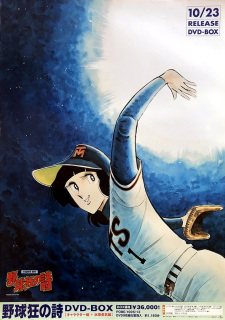
TV, 1977,
25 eps
Me:-
Author:10
Her performance had already been established as something that was used in some of these "Spokon" shoujo/girl centric serie, "Utsukushiki Challenger" and "Kin Medal e no Turn" for example. In this work the performance is very thematic and unique, even when looking at all of her other performances. I'd say that because of that the performance in the series feels something special.
Songs to look out for:
Yakyuukyou no Uta (野球狂の詩) - Opening theme
Yuuki no Theme (勇気のテーマ) - Ending theme
Songs to look out for:
Yakyuukyou no Uta (野球狂の詩) - Opening theme
Yuuki no Theme (勇気のテーマ) - Ending theme
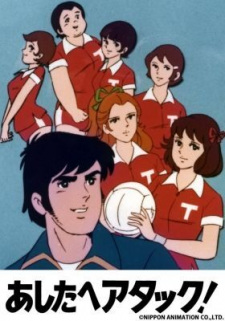
TV, 1977,
23 eps
Me:-
Author:10
Another girls sports series which I'd say was relatively carried by her performance alone. The series itself I'd say takes lot of inspiration from the likes of "Attack No 1" and "Ace wo Nerae". Another sports series "Moero! Attack" is probably better remembered as a series when it comes to her performance.
Songs to look out for:
Ashita e Attack (あしたへアタック) - Opening theme
Volleyball ga Suki (バレーボールが好き) - Ending theme
Utsukushii Kyou (美しい今日)
Auno wa Ashita (会うのは明日)
Songs to look out for:
Ashita e Attack (あしたへアタック) - Opening theme
Volleyball ga Suki (バレーボールが好き) - Ending theme
Utsukushii Kyou (美しい今日)
Auno wa Ashita (会うのは明日)
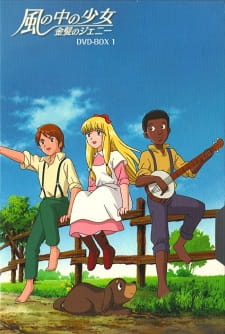
TV, 1992,
52 eps
Me:-
Author:9
The opening theme is the one usually recognized for its performance in this work but I'd say that the ending theme probably embodies the essence of the themes better when it comes to the performance and its relation to the series as a whole.
Songs to look out for:
Taiyou wo Oikakete (太陽を追いかけて) - Opening theme
Omoide no Kagami (思い出の鏡) - Ending theme
Furusato ga Kikoeru ~Nostalagia~ (ふるさとが聴こえる~ノスタルジア~)
Pearl Pink no Yokan (パールピンクの予感)
Songs to look out for:
Taiyou wo Oikakete (太陽を追いかけて) - Opening theme
Omoide no Kagami (思い出の鏡) - Ending theme
Furusato ga Kikoeru ~Nostalagia~ (ふるさとが聴こえる~ノスタルジア~)
Pearl Pink no Yokan (パールピンクの予感)
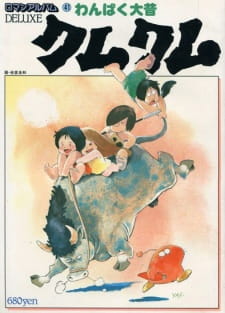
TV, 1975,
26 eps
Me:-
Author:10
The performance, especially the opening theme I'd say utilizes the strengths of Mitsuko Horie as an artist when it comes to the themes presented in the series in a brilliant way.
The series is essentially about "youth" and how the "relatable" parts of "youth" can be experienced in a foreign setting. The performance explores the "youth" and the "character" in a more subtle manner and you can experience the "longing" and "youth" of the character through the performance.
Songs to look out for:
Kum Kum no Uta (クムクムのうた) - Opening theme
Saurus-kun (サウルスくん) - Ending theme
Asobou (あそぼう)
The series is essentially about "youth" and how the "relatable" parts of "youth" can be experienced in a foreign setting. The performance explores the "youth" and the "character" in a more subtle manner and you can experience the "longing" and "youth" of the character through the performance.
Songs to look out for:
Kum Kum no Uta (クムクムのうた) - Opening theme
Saurus-kun (サウルスくん) - Ending theme
Asobou (あそぼう)
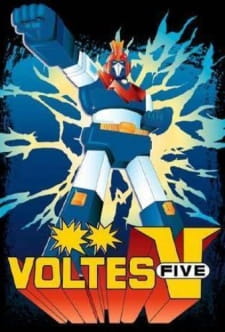
TV, 1977,
40 eps
Me:-
Author:10
The performance is boundary breaking, a female vocalist maining a performance in a robot series was not something that really happened much before this work. Usually series for "boys" had strong and masculine performance that revebrated the "strength" and the "justice" with a masculine "touch", and series for "girls" had soft and emotional aspect with a feminine "touch"
However with this performance Mitsuko Horie was able to deliver those aspects as well as anyone before her and took everyone by storm with her performance. You could say that the performance revebrates a strength that is rarely seen in any performance and the delivery sends shivers down to your spine, due to its incredible power.
Songs to look out for:
Voltes V no Uta (ボルテスVの歌)
However with this performance Mitsuko Horie was able to deliver those aspects as well as anyone before her and took everyone by storm with her performance. You could say that the performance revebrates a strength that is rarely seen in any performance and the delivery sends shivers down to your spine, due to its incredible power.
Songs to look out for:
Voltes V no Uta (ボルテスVの歌)
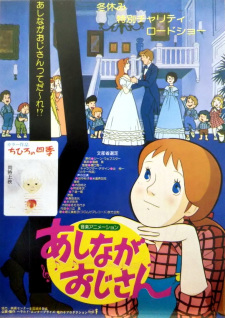
TV Special, 1979,
1 ep
Me:-
Author:9
Songs to look out for:
Daddy Long-Legs (Daddy Long-Legs)
Kono Sora no Shita ni (この空の下に)
Imagination (イマジネーション)
Blue Wednesday (Blue Wednesday)
Ganbare Judy (がんばれジュディ)
Daddy Long-Legs (Daddy Long-Legs)
Kono Sora no Shita ni (この空の下に)
Imagination (イマジネーション)
Blue Wednesday (Blue Wednesday)
Ganbare Judy (がんばれジュディ)
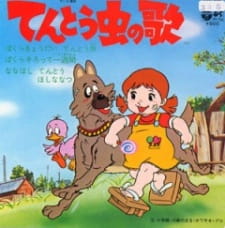
TV, 1974,
104 eps
Me:-
Author:9
Songs to look out for:
Bokura Kyoudai Tentou Mushi (ぼくらきょうだいてんとう虫) - Opening theme
Hiyoko Deshura (ひよ子でしゅら) - Ending theme
Nana Hoshi Tentou Hoshi Nanatsu (ななほしてんとうほしななつ)
Ekaki Uta (絵書きうた)
Tou-san no Nioi Kaa-san no Nioi (父さんのにおい母さんのにおい)
Eigo de Isshuukan (英語で一週間)
Namida wo Shimaou Pocket ni (涙をしまおうポケットに)
Tentou Mushi no March (てんとう虫のマーチ)
Bokura Kyoudai Tentou Mushi (ぼくらきょうだいてんとう虫) - Opening theme
Hiyoko Deshura (ひよ子でしゅら) - Ending theme
Nana Hoshi Tentou Hoshi Nanatsu (ななほしてんとうほしななつ)
Ekaki Uta (絵書きうた)
Tou-san no Nioi Kaa-san no Nioi (父さんのにおい母さんのにおい)
Eigo de Isshuukan (英語で一週間)
Namida wo Shimaou Pocket ni (涙をしまおうポケットに)
Tentou Mushi no March (てんとう虫のマーチ)
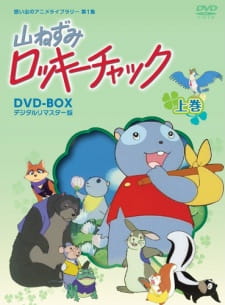
TV, 1973,
52 eps
Me:-
Author:10
The second WMT entry where her performance was used and I'd say the first entry where it plays a pivotal role when it comes to the overall experience. This series I'd say was a important part of establishing her as go to artist when it comes to many of these WMT and "WMT esque" series. Though "Candy Candy" and the success after that probably played even bigger role in that.
Songs to look out for:
Midori no Hidamari (緑の陽だまり) - Opening theme
Rocky to Polly (ロッキーとポリー) - Ending theme
Ke (毛)
Kekke Kekke (けっけけっけ)
Nani te Iu no Kana (何ていうのかな)
Ii Kanji (いい感じ)
Haraheri no Tango (腹へりのタンゴ)
Tororon (とろろん)
Onegai Oseete (お願いおせーて)
Tsudzuku (つくづく)
Are (あれ)
Namida (涙)
Yokatta (よかった)
Songs to look out for:
Midori no Hidamari (緑の陽だまり) - Opening theme
Rocky to Polly (ロッキーとポリー) - Ending theme
Ke (毛)
Kekke Kekke (けっけけっけ)
Nani te Iu no Kana (何ていうのかな)
Ii Kanji (いい感じ)
Haraheri no Tango (腹へりのタンゴ)
Tororon (とろろん)
Onegai Oseete (お願いおせーて)
Tsudzuku (つくづく)
Are (あれ)
Namida (涙)
Yokatta (よかった)

TV, 1981,
52 eps
Me:-
Author:9
Songs to look out for:
Hashire! Jolie (走れ!ジョリィ) - Opening theme
Futari de Hanbunko (ふたりで半分こ) - Ending theme
Boku wa Sebastian (ぼくはセバスチャン)
Wasurerarenaiyo Bokura (わすれられないよぼくら)
Jolie no Uta (ジョリィのうた)
Shuppatsu no Uta (出発のうた)
Rena ga Suki (レナが好き)
Fukafuka Jolie (ふかふかジョリィ)
Ashiato March (足あとマーチ)
Hashire! Jolie (走れ!ジョリィ) - Opening theme
Futari de Hanbunko (ふたりで半分こ) - Ending theme
Boku wa Sebastian (ぼくはセバスチャン)
Wasurerarenaiyo Bokura (わすれられないよぼくら)
Jolie no Uta (ジョリィのうた)
Shuppatsu no Uta (出発のうた)
Rena ga Suki (レナが好き)
Fukafuka Jolie (ふかふかジョリィ)
Ashiato March (足あとマーチ)
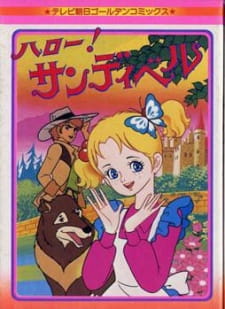
TV, 1981,
47 eps
Me:-
Author:9
The "Toei Majokko" Series had ended due to reasons unknown, but they still wanted to keep some elements of the "Series". This work draws some parallels to the success of WMT and "Candy Candy" and the performance of Mitsuko Horie is used to draw these loose elements together to form a connection to the successful works before it.
The performance itself, while doesn't have as much "character" as the previous successful works I'd say still doesn't leave anyone cold.
Songs to look out for:
Hello! Sandybell (ハロー!サンディベル) - Opening theme
Shiroi Suisen (白い水仙) - Ending theme
Yumemite Waltz (ゆめみてワルツ)
Sandybell-gou ni Notte (サンディベル号にのって)
Kaze ni Makenaide (風に負けないで)
Ano Hito ga Mama nara (あの人がママなら)
Viva!! Sandybell (ビバ!!サンディベル)
Shiawase wo Anata ni (しあわせをあなたに)
The performance itself, while doesn't have as much "character" as the previous successful works I'd say still doesn't leave anyone cold.
Songs to look out for:
Hello! Sandybell (ハロー!サンディベル) - Opening theme
Shiroi Suisen (白い水仙) - Ending theme
Yumemite Waltz (ゆめみてワルツ)
Sandybell-gou ni Notte (サンディベル号にのって)
Kaze ni Makenaide (風に負けないで)
Ano Hito ga Mama nara (あの人がママなら)
Viva!! Sandybell (ビバ!!サンディベル)
Shiawase wo Anata ni (しあわせをあなたに)
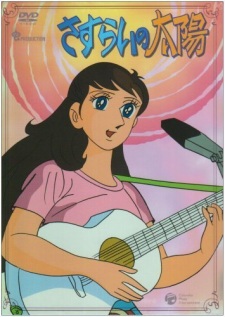
TV, 1971,
26 eps
Me:-
Author:10
The ending theme, very emotional performance and experience, also the cover of the opening theme, probably less known but the performance I'd say doesn't fall behind the more famous example.
Songs to look out for:
Kokoro no Uta (心のうた) - Ending theme
Sasurai no Taiyou (さすらいの太陽)
Songs to look out for:
Kokoro no Uta (心のうた) - Ending theme
Sasurai no Taiyou (さすらいの太陽)

TV, 1975,
26 eps
Me:-
Author:9
Songs to look out for:
Pepero no Bouken (ペペロの冒険) - Opening theme
Kaze yo Tsutaete (風よつたえて) - Ending theme
Shera no Inori (シェーラの祈り)
Chutchu no Warabe Uta (チュッチュのわらべ唄)
Susume Pepero (すすめペペロ)
Pepero no Bouken (ペペロの冒険) - Opening theme
Kaze yo Tsutaete (風よつたえて) - Ending theme
Shera no Inori (シェーラの祈り)
Chutchu no Warabe Uta (チュッチュのわらべ唄)
Susume Pepero (すすめペペロ)

TV, 1983,
42 eps
Me:-
Author:10
During the Majokko series' "break" there were more performances that were essentially part of "the series" when it comes to the "creative spirit" behind these series and the performances.
This "breakout" I'd say allowed more of a expansion when it comes to the diversite of her performance. Lot of that "diversity" was funneled into this series, and you can experience that through the perfromance.
Songs to look out for:
Koi wa Totsuzen (恋は突然) - Opening theme
Anata no Nigao e (あなたの似顔絵)
Doberman no Youni (ドーベルマンのように)
Ai wa Hikari no Naka de (愛は光の中で)
Anata ga Kienai (あなたが消えない)
Ame no Lullaby (雨のララバイ)
Junpaku no June Bride (純白のジューン・ブライド)
This "breakout" I'd say allowed more of a expansion when it comes to the diversite of her performance. Lot of that "diversity" was funneled into this series, and you can experience that through the perfromance.
Songs to look out for:
Koi wa Totsuzen (恋は突然) - Opening theme
Anata no Nigao e (あなたの似顔絵)
Doberman no Youni (ドーベルマンのように)
Ai wa Hikari no Naka de (愛は光の中で)
Anata ga Kienai (あなたが消えない)
Ame no Lullaby (雨のララバイ)
Junpaku no June Bride (純白のジューン・ブライド)
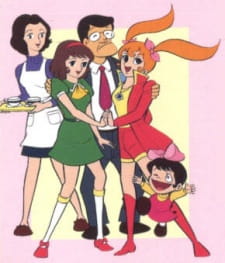
TV, 1978,
45 eps
Me:-
Author:10
Kind of an outlier in the "Majokko Series" as it is often not included in the series as there were multiple differences in the "production" team when compared to the more widely accepted entries in the "Majokko Series".
Despite of the "differences" the perfromance of Mitsuko Horie is essentially what you'd expect from a series that is part of the "Majokko Series" all the boxes are checked and just by the performance I'd say you wouldn't even realize that there is any "difference".
That might be why many still include the series in the "Majokko Series" as it folows "the spirit" of the series and the performance of Mitsuko Horie is just icing on the cake
Songs to look out for:
Majokko Tickle (魔女っ子チックル) - Opening theme
Tickle Tiko no Cha-Cha-Cha (チックルチーコのチャチャチャ) - Ending theme
Despite of the "differences" the perfromance of Mitsuko Horie is essentially what you'd expect from a series that is part of the "Majokko Series" all the boxes are checked and just by the performance I'd say you wouldn't even realize that there is any "difference".
That might be why many still include the series in the "Majokko Series" as it folows "the spirit" of the series and the performance of Mitsuko Horie is just icing on the cake
Songs to look out for:
Majokko Tickle (魔女っ子チックル) - Opening theme
Tickle Tiko no Cha-Cha-Cha (チックルチーコのチャチャチャ) - Ending theme
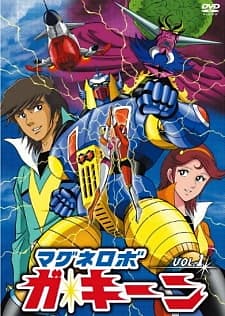
TV, 1976,
39 eps
Me:-
Author:10
The series features "a pair" of main characters where the important aspect is how they "unite". This theme is heavily represented in the performance as in the duet, both Mitsuko Horie and Ichiro Mizuki perform their parts with "strength" and they show the will to overcome "opposition" while showing their "unity" these are integral parts of the "series" as well as the "performance"
Songs to look out for:
Tatakae! Ga-Keen (たたかえ!ガ・キーン) - Opening theme
Takeru to Mai no Uta (猛と舞の歌) - Ending theme
Songs to look out for:
Tatakae! Ga-Keen (たたかえ!ガ・キーン) - Opening theme
Takeru to Mai no Uta (猛と舞の歌) - Ending theme
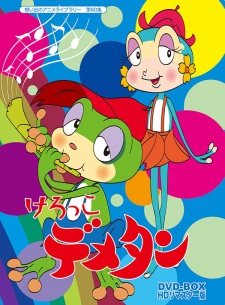
TV, 1973,
39 eps
Me:-
Author:10
Songs to look out for:
Kerokko Demetan (けろっこデメタン) - Opening theme
Makeruna Demetan (まけるなデメタン) - Ending theme
Kerokko Demetan (けろっこデメタン) - Opening theme
Makeruna Demetan (まけるなデメタン) - Ending theme
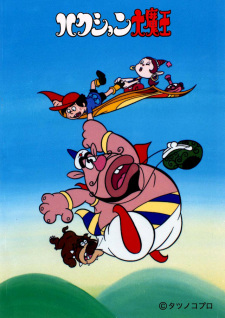
TV, 1969,
52 eps
Me:-
Author:10
Definitely an important performance as far as the performance by itself goes, however the performance when it comes to the series as a whole was more of a secondary aspect.
The performance itself played an important role when it came to the relationship between Mitsuko Horie and "Toei Majokko" Series
Songs to look out for:
Akubi Musume (アクビ娘)
The performance itself played an important role when it came to the relationship between Mitsuko Horie and "Toei Majokko" Series
Songs to look out for:
Akubi Musume (アクビ娘)

TV, 1996,
23 eps
Me:-
Author:9
Good example of a series where the entire series is carried by the perfromance as the series by itself doesn't provide enough to reach equal footing with the performance.
Songs to look out for:
LIKE MOTHER ~Daisuki na Okaa-san~ (LIKE MOTHER~大好きなお母さん~)
Songs to look out for:
LIKE MOTHER ~Daisuki na Okaa-san~ (LIKE MOTHER~大好きなお母さん~)
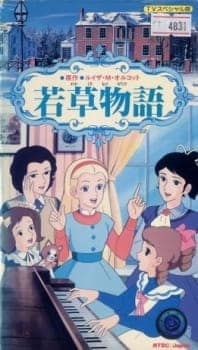
TV Special, 1980,
1 ep
Me:-
Author:10
Songs to look out for:
Haru no Kizashi (春の兆し)
Ai wa Itsu? (愛はいつ?)
Haru no Kizashi (春の兆し)
Ai wa Itsu? (愛はいつ?)
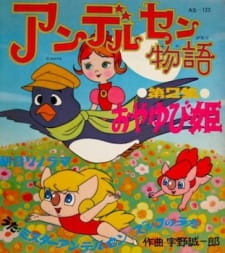
TV, 1971,
52 eps
Me:-
Author:9
The first WMT series where the performance of Mitsuko Horie plays a part. It is not the "whole series" that is affected by the performance, but a specific set of episodes. The nature of the performances is very varied from what you'd expect from her.
Songs to look out for:
Sora Tobu Kaban (空とぶカバン)
Kami no Ballerina (紙のバレリーナ)
Chris to Ellen (クリスとエレン)
Runpen to Otousan (ルンペンとお父さん)
Shaberenai keredo Shiawase (しゃべれないけれどしあわせ)
Hitoripocchi no Boku (一人ぽっちのボク)
Uwa! Akai Kutsu ga Odotta yo (うわー赤い靴が踊ったよ)
Songs to look out for:
Sora Tobu Kaban (空とぶカバン)
Kami no Ballerina (紙のバレリーナ)
Chris to Ellen (クリスとエレン)
Runpen to Otousan (ルンペンとお父さん)
Shaberenai keredo Shiawase (しゃべれないけれどしあわせ)
Hitoripocchi no Boku (一人ぽっちのボク)
Uwa! Akai Kutsu ga Odotta yo (うわー赤い靴が踊ったよ)
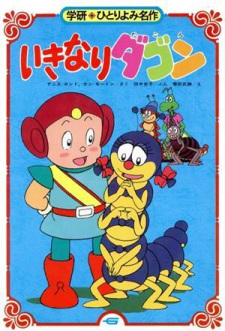
TV, 1988,
12 eps
Me:-
Author:10
Very strong performance on a series that for some reason is relatively obscure even as far as the performance goes. There necessarily isn't much link between the expored themes and the performance, and I'd say that it is the "performance" that essentailly carries the overall experience when it comes to the series as a whole.
Songs to look out for:
Ai Koso Hero (愛こそヒーロー) - Opening theme
Hello Goodbye ~Owaranai Parade~ (ハローグッバイ~終わらないパレード~) - Ending theme
Songs to look out for:
Ai Koso Hero (愛こそヒーロー) - Opening theme
Hello Goodbye ~Owaranai Parade~ (ハローグッバイ~終わらないパレード~) - Ending theme
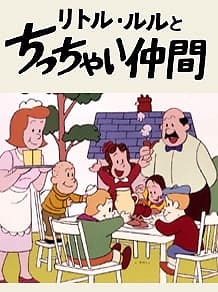
TV, 1976,
26 eps
Me:-
Author:9
Songs to look out for:
Little Lulu to Chicchai Nakama (リトル・ルルとちっちゃい仲間) - Opening theme
Watashi wa Lulu (わたしはルル) - Ending theme
Little Lulu to Chicchai Nakama (リトル・ルルとちっちゃい仲間) - Opening theme
Watashi wa Lulu (わたしはルル) - Ending theme
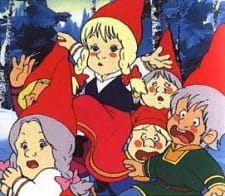
TV, 1984,
23 eps
Me:-
Author:10
Songs to look out for:
Waku Waku Santa Claus (わくわくサンタクロース) - Opening theme
Chiisai Maru ga Hirogatte (ちいさいマルがひろがって) - Ending theme
Oide White X'mas (おいでWhite X'mas)
Yume wo Tabishite (夢を旅して)
Omocha Tsukuri wa Ooisogashi (おもちゃ作りは大忙し)
Shiawase no Mori (しあわせの森)
Mori no Tonto-tachi (森のトントたち)
Kawaii Elisa (かわいいエリサ)
Tonto Tonto Tonton (トント トント トントン)
Waku Waku Santa Claus (わくわくサンタクロース) - Opening theme
Chiisai Maru ga Hirogatte (ちいさいマルがひろがって) - Ending theme
Oide White X'mas (おいでWhite X'mas)
Yume wo Tabishite (夢を旅して)
Omocha Tsukuri wa Ooisogashi (おもちゃ作りは大忙し)
Shiawase no Mori (しあわせの森)
Mori no Tonto-tachi (森のトントたち)
Kawaii Elisa (かわいいエリサ)
Tonto Tonto Tonton (トント トント トントン)
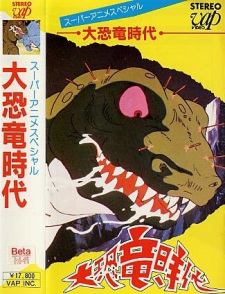
TV Special, 1979,
1 ep
Me:-
Author:9
The performance is very thematic and focuses on the "emotional aspect" of the story of the film. The film itself has some "rawness" but the performance enables a contrast to that "rawness" and with that soft and emotional performance I'd say elevates the film into a new level.
Songs to look out for:
Empathy -Ai Aru Sekai- (エンパシー-愛ある世界-)
Yume no Lullaby (夢のララバイ)
Songs to look out for:
Empathy -Ai Aru Sekai- (エンパシー-愛ある世界-)
Yume no Lullaby (夢のララバイ)
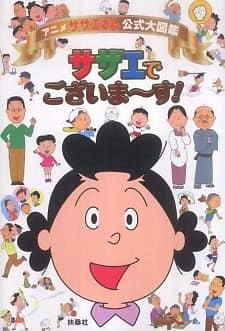
TV, 1969,
? eps
Me:-
Author:10
Not the performance that "Sazae-san" is usually associated as these performances relate to the rebroadcast of "Sazae-san" that started in 1975 and ran to 1992.
They provide essentially a different look into the "Sazae-san" series compared to the famous performances that are known to pretty much everyone. The original performance focuse of the main character "Sazae" and how she "handles" the daily life including references to some of the famous "elements" from the story.
The performance by Mitsuko Horie focuses more on the aspect of the family from the eyes of the "main character" as well as "the observer" this provides another perspective to the well known series and interesting contrast to the famous performance.
Songs to look out for:
Sazae-san no Uta (サザエさんのうた)
Akarui Sazae-san (あかるいサザエさん)
They provide essentially a different look into the "Sazae-san" series compared to the famous performances that are known to pretty much everyone. The original performance focuse of the main character "Sazae" and how she "handles" the daily life including references to some of the famous "elements" from the story.
The performance by Mitsuko Horie focuses more on the aspect of the family from the eyes of the "main character" as well as "the observer" this provides another perspective to the well known series and interesting contrast to the famous performance.
Songs to look out for:
Sazae-san no Uta (サザエさんのうた)
Akarui Sazae-san (あかるいサザエさん)
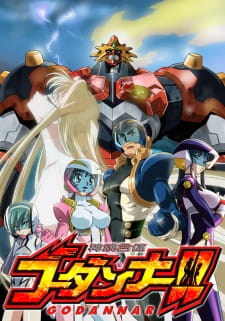
TV, 2003,
13 eps
Me:-
Author:9
Another duet performance that I'd say focuses mainly of the "over the top" aspect drawing some "parallels" to "Ga-Keen" as far as the performance goes. This I'd say enables looking at the elements of the series in a new fashion while keeping the original parallels brought by the performance in mind.
Songs to look out for:
Zangou no Hitsugi (塹壕の棺)
Songs to look out for:
Zangou no Hitsugi (塹壕の棺)
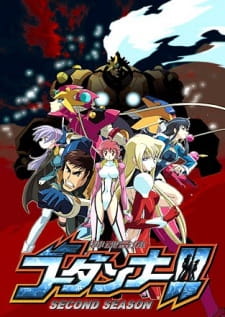
TV, 2004,
13 eps
Me:-
Author:9
Another duet performance that I'd say focuses mainly of the "over the top" aspect drawing some "parallels" to "Ga-Keen" as far as the performance goes. This I'd say enables looking at the elements of the series in a new fashion while keeping the original parallels brought by the performance in mind.
Songs to look out for:
ENGAGE!!! Godannar (ENGAGE!!!ゴーダンナー)
Saiai (最愛)
Songs to look out for:
ENGAGE!!! Godannar (ENGAGE!!!ゴーダンナー)
Saiai (最愛)
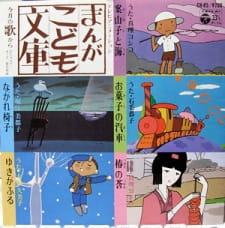
TV, 1978,
51 eps
Me:-
Author:10
Songs to look out for:
Yondeiru (よんでいる)
Nagare Isu (ながれ椅子)
Yondeiru (よんでいる)
Nagare Isu (ながれ椅子)
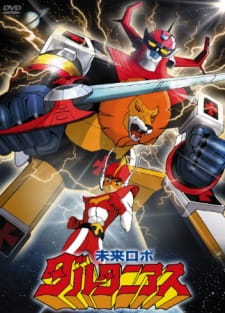
TV, 1979,
47 eps
Me:-
Author:9
Songs to look out for:
Daltanias no Uta (ダルタニアスの歌)
Daltanias no Uta (ダルタニアスの歌)

TV, 1975,
52 eps
Me:-
Author:9
Songs to look out for:
Sindbad no Bouken (シンドバットのぼうけん)
Sindbad no Uta (シンドバットのうた)
Ali Baba no Uta (アリババのうた)
Sindbad no Bouken (シンドバットのぼうけん)
Sindbad no Uta (シンドバットのうた)
Ali Baba no Uta (アリババのうた)
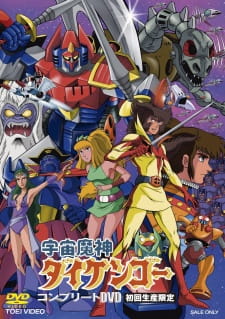
TV, 1978,
26 eps
Me:-
Author:9
First appearance as a voice actor, also performance in the theme song.
Songs to look out for:
Uchuu Majin Daikengo no Uta (宇宙魔人ダイケンゴーの歌)
Songs to look out for:
Uchuu Majin Daikengo no Uta (宇宙魔人ダイケンゴーの歌)
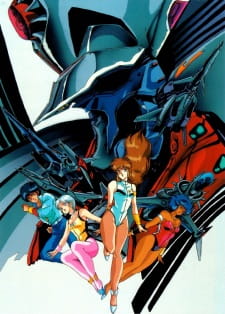
OVA, 1987,
3 eps
Me:-
Author:10
Another duet performance with "Aniki" this time the performance gives off a similar but still distinct vibe that resembles some of their earlier duets but the performance feels more "raw" and "pure" in comparison.
The performance has more of a "wild" element to it when compared to some of the other performances that are essentially held back by the "aspects" of the series that they are linked to. However here you can experience the "freedom" that can rarely be seen in many of these performances.
Songs to look out for:
CROSS FIGHT! (CROSS FIGHT!)
Kokoro no Honesty (心のオネスティー)
The performance has more of a "wild" element to it when compared to some of the other performances that are essentially held back by the "aspects" of the series that they are linked to. However here you can experience the "freedom" that can rarely be seen in many of these performances.
Songs to look out for:
CROSS FIGHT! (CROSS FIGHT!)
Kokoro no Honesty (心のオネスティー)
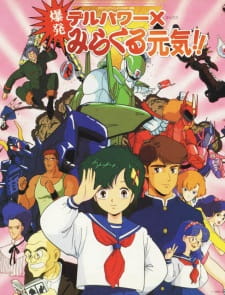
OVA, 1986,
1 ep
Me:-
Author:10
The film has very strong musical performance and cast when it comes to the performance scenes and I'd say that the performance of Ichirou Mizuki and Mitsuko Horie partly carry the imposrtant parts of the film when it comes to the experience.
Mitsuko Horie providing a strong and decisive opening theme, setting the tone and the initial setup for the entire experience and the film. The other performances are mainly providing contrast to that initial performance I'd say. Ichirou Mizuki being one of the best to contrast with Mitsuko Horie I'd say stands out because of that.
Songs to look out for:
Breakin' Me (Breakin' Me)
Ganbare! Manami! (がんばれ!まーなーみー!)
Mitsuko Horie providing a strong and decisive opening theme, setting the tone and the initial setup for the entire experience and the film. The other performances are mainly providing contrast to that initial performance I'd say. Ichirou Mizuki being one of the best to contrast with Mitsuko Horie I'd say stands out because of that.
Songs to look out for:
Breakin' Me (Breakin' Me)
Ganbare! Manami! (がんばれ!まーなーみー!)
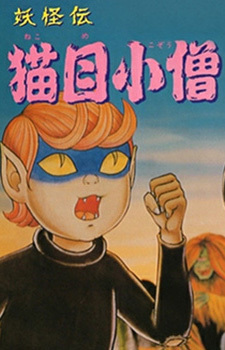
TV, 1976,
25 eps
Me:-
Author:10
Songs to look out for:
Nekome Kozou (猫目小僧)
Miro yo! Kono Me wo (みろよ!この目を)
Nekome Kozou (猫目小僧)
Miro yo! Kono Me wo (みろよ!この目を)
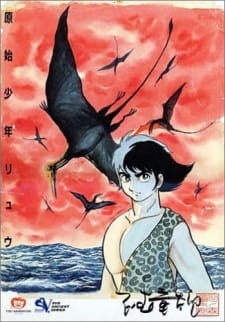
TV, 1971,
22 eps
Me:-
Author:10
The Performance provides good contrast to the performance of Ichirou Mizuki
Songs to look out for:
Ran no Uta (ランのうた)
Songs to look out for:
Ran no Uta (ランのうた)
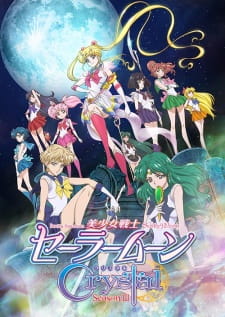
TV, 2016,
13 eps
Me:-
Author:9
Songs to look out for:
New Moon ni Koishite (ニュームーンに恋して)
New Moon ni Koishite (ニュームーンに恋して)
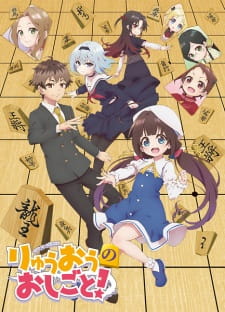
TV, 2018,
12 eps
Me:-
Author:9
A Very powerful duet performance by Mitsuko Horie and Ichirou Mizuki, they also voiced the parents of one of the main characters of the series. However I'd say that the duet performance is by far the most powerful duet performance that I've been able to expereince from them.
The duet tackles many themes that I'd say can be linked to the series itself and thus I'd say that the duet is relatively important part of the "experience" when it comes to the series
Songs to look out for:
Wakura no Ai no Monogatari (和倉のあいの物語)
The duet tackles many themes that I'd say can be linked to the series itself and thus I'd say that the duet is relatively important part of the "experience" when it comes to the series
Songs to look out for:
Wakura no Ai no Monogatari (和倉のあいの物語)
